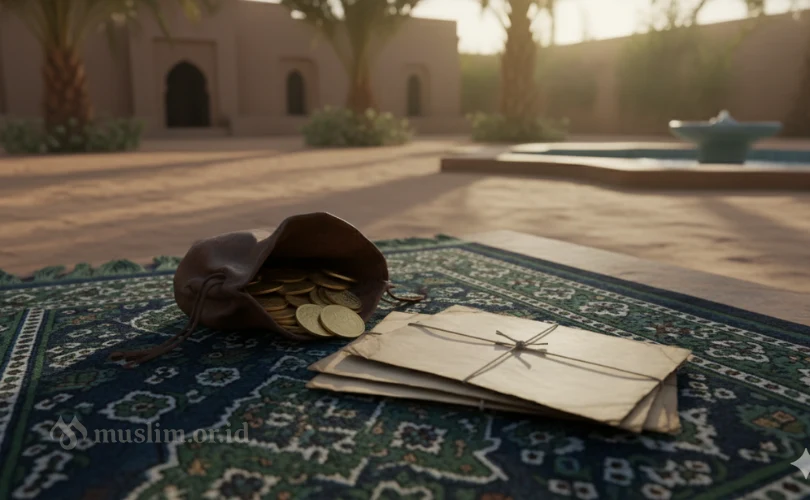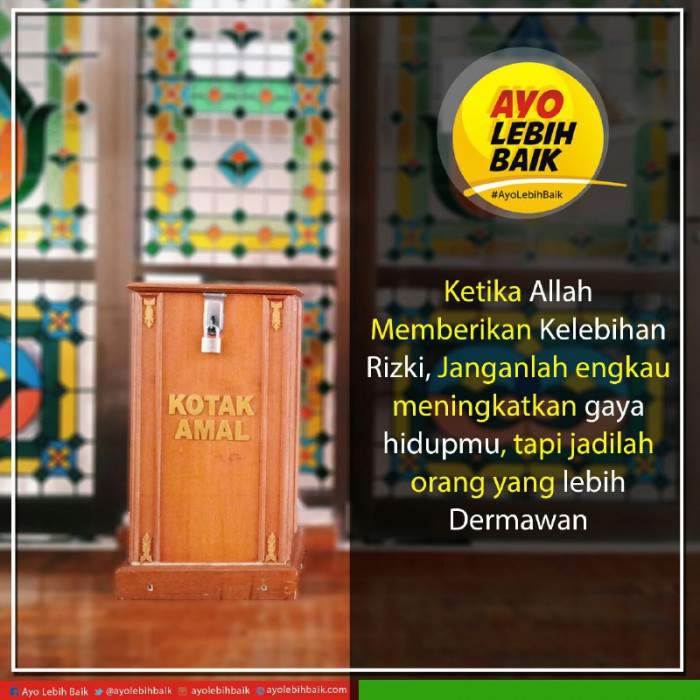As the end of the discussion of Debt and Receivable Jurisprudence, a Muslim should know how to be mutual with other humans, especially in matters of debt and receivables. In matters of debt and receivables, sometimes friends can become enemies, family can become enemies, and neighbors who were originally harmonious and peaceful, turn into indifferent.
Maybe this happens because they don’t know the etiquette of debts and receivables. So quite a few disputes occur due to ignorance of these etiquette.
Important rules in dealing with people
There are rules you must know in dealing with people,
The rights of God Almighty are based on forgiveness, and the rights of His servants are based on tolerance, to strive for God’s sufficiency and human needs.
“The rights of Allah Ta’ala are built on the basis of tolerance (forgiveness), while the rights of servants (humans) are built on the basis of demands (stingy nature), because Allah does not need anything, while humans need each other.”
Namely, Allah Story Who forgives His servants if His servants are negligent in fulfilling the rights of Allah. As for humans, their rights are founded on stinginess. This means that humans do not want their rights to be taken away, confiscated, or their debts not paid. That is the original law of muamalah with humans. This is based on the word of God Knocking,
And souls are brought into poverty
“And in humans there has been a stingy (stingy) nature.” (QS. An-Nisa: 128)
So when you are in a debtor’s position, don’t make the excuse that you don’t want to pay your debt because the person giving the debt is a rich person. Rights are rights; No matter how rich the person who gives you the debt, his or her rights must still be fulfilled. If not, then this is an unjust act which will be accounted for on the Day of Judgment. Prophet sallallaahu ‘alaihi wa sallam said,
Whoever persecutes his brother for the sake of his honor or anything else, let him abstain from him this day before there is no dinar or dirham, if he has a job. A pious person will be taken from him according to his injustice, and if he does not have any good deeds, then some of his friends’ bad deeds will be taken from him, and a burden will be placed on him.
“Whoever wrongs his brother, be it his honor or anything else, then he should ask for halal (pleasure) from him on this day, before the day (Doomsday) arrives on which there are no dinars or dirhams in it. If he has good deeds, they will be taken from him according to the degree of his guilt. (HRBukhari)
The Prophet’s words are clear sallallaahu ‘alaihi wa sallam towards people who have assets, they delay paying their debts. He sallallaahu ‘alaihi wa sallam said,
The wishes of the rich are unjust, so if one of you is followed by a ruler, let him follow
“Delaying payment by a healthy person is injustice. If one of you transfers (his debt) to a rich person, he should accept the transfer.” (HRBukhari)
This means that a person who is able to pay a debt but delays it on purpose is being unjust, because he is withholding another person’s rights without any sharia reasons. Then, if the debtor transfers his debt to a rich person, then the debtor should accept it and not make things difficult for him. This is known as fiqh Don’t worry.
Debtor etiquette
Debtors should borrow only because of urgent needs
Don’t make debt a habit of life. Prophet sallallaahu ‘alaihi wa sallam In his prayers he often takes refuge from debt. Ummul Mukminin ‘Aisyah Radiyallahu ‘anha say,
He often said in his prayers: O Allah, I seek refuge in You from sin and debt. He was told: Do you seek refuge from sin and debt, O Messenger of Allah? He said: If a person is in debt, then he takes a loan, then he lies and makes a promise and breaks it.
“He, may God bless him and give him peace, often prayed in his prayers, ‘O Lord, I seek refuge with you from sin and debt bondage.‘ Then it was said to him, ‘O Messenger of Allah, you often ask for protection from debt.’ He answered, ‘Indeed, when a person is in debt, he will talk and then lie, promise and then break.’ (Muttafaqun ‘alaih)
Intends to pay off the debt
Prophet sallallaahu ‘alaihi wa sallam said,
Whoever takes someone’s money and wants to return it, Allah will pay it, and whoever takes it and wants to destroy it, Allah will destroy it.
“Whoever takes human property (debt) with the intention of paying it off, then Allah will help to pay it off. And whoever takes human property with the intention of destroying it (not paying it off), then Allah will destroy him.” (HRBukhari)
Good intentions are a strong reason to obtain sustenance and Allah gives the ability to pay off debts. On the other hand, bad intentions will actually be the cause of Allah destroying someone’s wealth.
Record debts clearly
As the word of God Story in Surah Al-Baqarah verse 282, and the discussion has passed.
Pay it off immediately when you can
As the Prophet said sallallaahu ‘alaihi wa sallam,
The opinion of rich people is unfair
“Delaying payment by people who can afford it is an injustice.” (HRBukhari)
Return with equal or better (without conditions at the start of the contract)
Debt giver etiquette
Providing loans with the intention of helping and hoping for a reward from Allah Story
Don’t make things difficult for people who owe money
As the word of God Knocking,
And if he’s in trouble, look for something easy. And if you give charity, it is better for you, if you only knew.
“If he (the person who owes the debt) is in trouble, give him a grace period until he finds relief. You give charity (forgive the debt), it is better for you if you know (it).” (QS. Al-Baqarah: 280)
Not taking advantage of debt (disguised usury)
Such as asking for gifts, extras, or services in return for the loan given. All of that includes usury.
Take notes and present witnesses
As Allah commands in Surah Al-Baqarah verse 282, whether the debt is large or small. This is of course so that disputes do not arise in the future.
These are some of the things you need to know before you owe or owe someone. The most important thing is, don’t get into debt unless you are in a state of urgency. There’s no need to go into debt if you can’t afford it. Don’t put regrets in the future after previously dispelling regrets is a skill.
May God make us people who do not wish to be in debt; Make us people who, if we have debt, Allah will make it easy for us to pay it off. And may Allah make things easier for Muslims who have debts, so that Allah can pay off their debts and make their affairs easier.
This is the end of our series of articles related to the Jurisprudence of Debts and Receivables, we hope that what we have written is useful for us personally and also for our readers. God bless.
[Selesai]
Return to section 11 Start from section 1
***
Depok, 26 Rabi’ul Akhir 1447/ 19 October 2025
Writer: Zia Abdurrofi
Article Muslim.or.id
News
Berita
News Flash
Blog
Technology
Sports
Sport
Football
Tips
Finance
Berita Terkini
Berita Terbaru
Berita Kekinian
News
Berita Terkini
Olahraga
Pasang Internet Myrepublic
Jasa Import China
Jasa Import Door to Door



